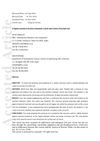 27 citations,
September 2015 in “PharmaNutrition”
27 citations,
September 2015 in “PharmaNutrition” Astaxanthin is a safe antioxidant that may improve heart, skin, eye health, and physical performance, and help manage chronic diseases.
 27 citations,
September 2017 in “Journal of Medicinal Food”
27 citations,
September 2017 in “Journal of Medicinal Food” Annurca apple supplement safely increases hair growth and keratin in humans.
 26 citations,
February 2020 in “International Journal of Biological Macromolecules”
26 citations,
February 2020 in “International Journal of Biological Macromolecules” Chitosan-coated dutasteride nanocapsules improve hair treatment, and physical stimulation boosts effectiveness.
 24 citations,
January 2020 in “International Journal of Molecular Sciences”
24 citations,
January 2020 in “International Journal of Molecular Sciences” Some plants with flavonoids may help treat hair loss and promote hair growth.
 24 citations,
October 2019 in “Biomaterials Research”
24 citations,
October 2019 in “Biomaterials Research” Minoxidil in HA-PLGA nanoparticles effectively treats alopecia through skin delivery.
 24 citations,
July 2019 in “Journal of Obstetrics and Gynaecology”
24 citations,
July 2019 in “Journal of Obstetrics and Gynaecology” The combination therapy improved PCOS symptoms in both obese and non-obese women, with weight loss in the obese group.
 22 citations,
November 2018 in “Brazilian Journal of Pharmaceutical Sciences”
22 citations,
November 2018 in “Brazilian Journal of Pharmaceutical Sciences” New physical methods like electrical currents, ultrasound, and microneedles show promise for improving drug delivery through the skin.
 21 citations,
March 2019 in “Experimental Dermatology”
21 citations,
March 2019 in “Experimental Dermatology” Immune cells around hair follicles help control hair growth and could be targets for treating hair disorders.
 20 citations,
January 2009 in “Chemical Papers”
20 citations,
January 2009 in “Chemical Papers” Both HPSAM and PLS methods accurately measure minoxidil and tretinoin concentrations.
 18 citations,
August 2014 in “Lipids”
18 citations,
August 2014 in “Lipids” Human hair has more unsaturated fats inside than on the surface, and certain lipids may help bind the outer and inner layers together.
 18 citations,
August 2019 in “Drug Development and Industrial Pharmacy”
18 citations,
August 2019 in “Drug Development and Industrial Pharmacy” Quercetin-loaded nanoparticles can penetrate skin, minimize hair loss, and promote hair regrowth, showing slightly better results than a marketed product.
 17 citations,
April 2017 in “International Journal of Biological Macromolecules”
17 citations,
April 2017 in “International Journal of Biological Macromolecules” Monoolein-alginate beads help heal wounds by controlling moisture and effectively delivering adenosine to the skin.
 16 citations,
September 2018 in “Journal of Molecular Liquids”
16 citations,
September 2018 in “Journal of Molecular Liquids” The PS-b-PAA copolymer nanomicelles are effective for delivering a cancer treatment drug in photodynamic therapy.
 15 citations,
October 2020 in “European journal of pharmaceutics and biopharmaceutics”
15 citations,
October 2020 in “European journal of pharmaceutics and biopharmaceutics” Caffeine penetrates skin quickly through open hair follicles, but less through closed ones, with levels becoming equal after 22 hours.
 14 citations,
August 2018 in “Journal of Pharmaceutical and Biomedical Analysis”
14 citations,
August 2018 in “Journal of Pharmaceutical and Biomedical Analysis”  13 citations,
January 2014 in “Aesthetic Surgery Journal”
13 citations,
January 2014 in “Aesthetic Surgery Journal” Cyperus rotundus oil effectively reduces unwanted hair without side effects.
 13 citations,
June 2020 in “Journal of Dermatological Treatment”
13 citations,
June 2020 in “Journal of Dermatological Treatment” Topical finasteride helps regrow hair and reduce hair loss in men and women.
 12 citations,
July 2020 in “International Journal of Pharmaceutics”
12 citations,
July 2020 in “International Journal of Pharmaceutics” Iron oxide nanoparticles improve skin penetration and drug release for hair loss treatment.
 12 citations,
January 2018 in “Journal of Drug Delivery Science and Technology”
12 citations,
January 2018 in “Journal of Drug Delivery Science and Technology” The new particle system could be a promising treatment for diseases related to the 5-α reductase enzyme.
 11 citations,
January 2020 in “Micro and Nanosystems”
11 citations,
January 2020 in “Micro and Nanosystems” The new gel improves skin delivery of a drug, potentially reducing dose frequency and side effects.
 11 citations,
January 2013 in “Postępy Dermatologii i Alergologii”
11 citations,
January 2013 in “Postępy Dermatologii i Alergologii” The conclusion is that a combination of noninvasive treatments and lifestyle changes can improve skin health during menopause.
 11 citations,
August 1997 in “Expert Opinion on Therapeutic Patents”
11 citations,
August 1997 in “Expert Opinion on Therapeutic Patents” Many potential alopecia treatments need more testing to confirm they promote acceptable hair growth with minimal side effects.
 10 citations,
November 2016 in “International Journal of Cosmetic Science”
10 citations,
November 2016 in “International Journal of Cosmetic Science” A tough membrane between the outer and inner layers of human hair protects it from damage.
 10 citations,
January 1985 in “Elsevier eBooks”
10 citations,
January 1985 in “Elsevier eBooks” Active oxygen species might be involved in skin tumor growth, but their exact role is unclear.
 10 citations,
January 2016 in “Elsevier eBooks”
10 citations,
January 2016 in “Elsevier eBooks” Nanoparticles can speed up wound healing and deliver drugs effectively but may have potential toxicity risks.
 10 citations,
October 2015 in “Medicina Clínica (english Edition)”
10 citations,
October 2015 in “Medicina Clínica (english Edition)” Recombinant human epidermal growth factor is versatile, effective, and safe for long-term skin and mucosal treatments.
 10 citations,
August 2015 in “Journal of biophotonics”
10 citations,
August 2015 in “Journal of biophotonics” Hair follicles help substances penetrate the skin faster and more effectively.
 9 citations,
November 2017 in “International Journal of Nanomedicine”
9 citations,
November 2017 in “International Journal of Nanomedicine” Tiny particles called anionic squarticles can effectively remove a common antidepressant from the body after an overdose.
 9 citations,
January 2008 in “Acta histochemica et cytochemica”
9 citations,
January 2008 in “Acta histochemica et cytochemica” COX-2 levels change during the hair cycle and affect skin and hair growth.
 8 citations,
May 2022 in “International journal of nanomedicine”
8 citations,
May 2022 in “International journal of nanomedicine” Lecithin-encapsulated resveratrol nanoparticles could be a safe and effective anti-cancer treatment.






























